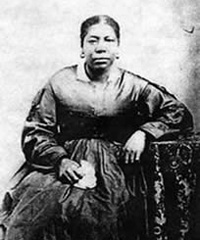| Formation | June 8, 1971 |
|---|---|
| Founders | Thomas Monson, Gordon B. Hinckley, Boyd K. Packer, Ruffin Bridgeforth, Eugene Orr, Darius Gray |
| Founded at | Salt Lake City, Utah |
| Leader | Davis Stovall |
Parent organization | The Church of Jesus Christ of Latter-day Saints |
| Black people and the Latter Day Saint movement |
|---|
 |
The Genesis Group is an auxiliary organization of the Church of Jesus Christ of Latter-day Saints (LDS church) for African-American members and their families.
History
[edit]LDS Church leaders Thomas Monson, Gordon B. Hinckley, and Boyd K. Packer established the Genesis Group with Ruffin Bridgeforth, Eugene Orr, and Darius Gray on June 8, 1971 in Salt Lake City, Utah.[1] It was first organized to provide members an organization where they could affiliate with fellow African-American members.
The Genesis group provided meetings for Black members of the LDS church; specifically, Relief Society, Primary, Young Men, Young Women and testimony meetings. Members of Genesis were still expected to attend Sunday meetings in their home wards,[2] which at the time were sacrament meeting, Priesthood meetings, and Sunday School.[3] It was like a branch, a small group of members, but without priesthood authority. The group was led by Ruffin Bridgeforth from 1971 through 1978.[2] Shortly after the church's June 8, 1978, announcement of the revelation extending the priesthood to all worthy male members of the church, the group's attendance dropped, and officially discontinued in 1987. Participation decreased in part because it added additional time commitments to already demanding LDS church membership. In 1985, Marva Collins started a "Genesis II" group in Oakland, California, and published a newsletter focused on news about Black Mormons until 1988.[2]
The Genesis Group was reorganized in 1996, based on a perception that African Americans still had unique issues and could benefit from a chance to affiliate with one another. Leaders of the group include Darius Gray (1997–2003), Don Harwell (2003–2018), and Davis Stovall (2018-present).[4][5] Stake and High Councilmen were assigned to represent The Genesis Group in local organization, and a General authority was assigned to be a liaison to the group.[6]
Other Genesis groups have existed in Washington, D.C.[2] In 2007, similar support groups existed in Hattiesburg, Mississippi, Cincinnati and Columbus, Ohio, Los Angeles, and Houston.[4] The Genesis Group meets on the first Sunday of every month in Salt Lake City.[7]
See also
[edit]- 1978 Revelation on Priesthood
- Black Mormons
- Black people and early Mormonism
- Black people and Mormonism
References
[edit]- ^ Fletcher Stack, Peggy (January 8, 2018). "Black Mormon support group laments loss of their prophet 'champion,' looks to the Genesis of even greater influence". The Salt Lake Tribune.
- ^ a b c d Embry, Jessie L. (1994). Black Saints in a white church : contemporary African American Mormons. Salt Lake City: Signature Books. pp. 183–191. ISBN 1560850442.
- ^ Christensen, Tom (April 18, 2014). "History of the LDS three-hour Sunday block". Standard-Examiner. Archived from the original on June 1, 2017. Retrieved July 17, 2017.
- ^ a b Stack, Peggy Fletcher (July 7, 2007). "Faithful witness". The Salt Lake Tribune. Retrieved July 17, 2017.
- ^ Walch, Tad (January 7, 2018). "LDS Church reorganizes Genesis Group leadership". DeseretNews.com. Retrieved January 8, 2018.
- ^ Embry, Jessie L. (1990). "Separate but Equal? Black Branches, Genesis Groups, or Integrated Wards?" (PDF). Dialogue. 23 (1). Retrieved July 17, 2017.
- ^ "Discussing the Priesthood Ban with Members of the Genesis Group", Latter-day Saint Perspectives, 5 July 2017. Retrieved on 9 April 2021.
External links
[edit]- African-American history of Utah
- Organizational subdivisions of the Church of Jesus Christ of Latter-day Saints
- Christian organizations established in 1971
- Mormonism and race
- African-American Latter Day Saints
- 1971 establishments in Utah
- Latter Day Saint culture
- Post–civil rights era in African-American history








